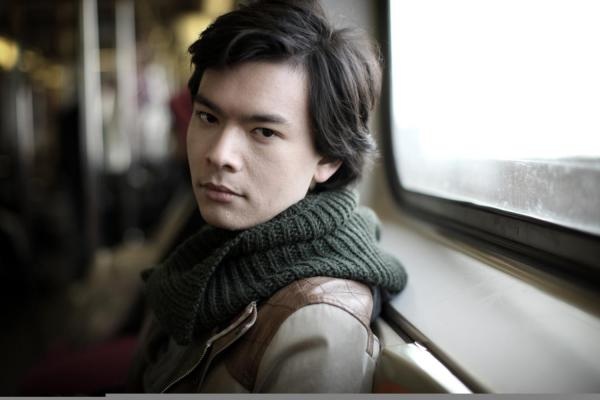Jackiw, Polonsky offer compelling and intelligent program at Mandel Hall
The University of Chicago Presents series hosted violinist Stefan Jackiw and pianist Anna Polonsky in a recital at the University’s Mandel Hall Friday night. The duo was a last-minute substitution for violinist Isabelle Faust and pianist Alexander Melnikov, who were forced to cancel last week due to Faust’s illness.
The evening opened with Ravel’s popular showpiece Tzigane. From the vicious opening gesture of the lengthy cadenza that launches the work, Jackiw persuasively evoked the piece’s gypsy inspiration, producing exotic timbres in passages impossibly high on the G-string and idiomatically emphasizing Ravel’s crunched double-stopped dissonances. Polonsky provided a lapidary accompaniment throughout while also channeling the lutheal (an apparatus attached to the piano to produce a jangling cimbalom-like sound, which Ravel indicated in his original score). The performance also benefited from freer rubato than one typically hears in performances with orchestral accompaniment, though Jackiw and Polosnky didn’t quite end together.
Witold Lutosławski’s lesser-known Partita (written in 1984 for Anne-Sophie Mutter) followed the Impressionist warhorse. Taking its inspiration from Baroque dance elements, the work’s resemblance to the traditional conception of a partita ends there. Partita is cast in three primary movements, which are separated by unsynchronized ad libitum interludes, and the work is imbued with, what Jackiw termed in his stage introduction, a “kinetic, manic energy.” The violinist more than delivered on his description. Guttural gestures growling from his bow highlighted the opening movement; the work’s central Largo was full of pathos and built to a Shostakovich-esque climax, with cantabile wailing in the upper register of the violin; and the frenzied gigue finale was thrillingly frantic.
The second half opened with Kaija Saariaho’s Nocturne in Memory of Witold Lutosławski. The Finnish composer wrote this somber work for solo violin in just eight days from sketches for her then-in-progress violin concerto (ultimately entitled Graal Théàtre) following Lutosławski’s 1994 death. Performed on a blacked-out stage and taking the violin’s tuning A-natural as a point of departure, the work is full of incredibly wide intervals with ethereally high harmonics that Jackiw executed with poise and mournful introspection.
César Franck’s Violin Sonata in A Major, the one carry-over from Faust’s original program, followed the Saariaho work without pause, the hall lights coming back on as Polonsky began the work’s short piano introduction. The opening movement’s limpid, swaying lines were performed with fitting nineteenth-century grace, and its final sweeping gesture and resolution were particularly affecting. Polonsky’s accompaniment in the agitato second movement was rumbling, and the pair captured the movement’s shifting moods—aggressive, nervous, rapturous—with ease. The third movement, Recitativo-Fantasia, could have sounded more spontaneous and improvisatory from Jackiw, and while the final movement’s soaring, unapologetic romanticism was an aural treat, at times Jackiw might have instilled a stringer arc and direction arc in its impassioned phrases.
As an encore the duo performed the final movement of Messian’s Quatuor pour la Fin du Temps. This was a strange choice, as the post-apocalyptic hymn to Jesus’ immortality really makes most sense as a conclusion to the quartet’s seven other movements. Nonetheless, Jackiw soberly offered its sustained lines with a mesmerizingly steady bow arm, and the duo’s artful final diminuendo, with opalescent chimes from Polonsky ringing under Jackiw’s sustained high register ended the evening with a pious, reverent tone.
Posted in Performances





